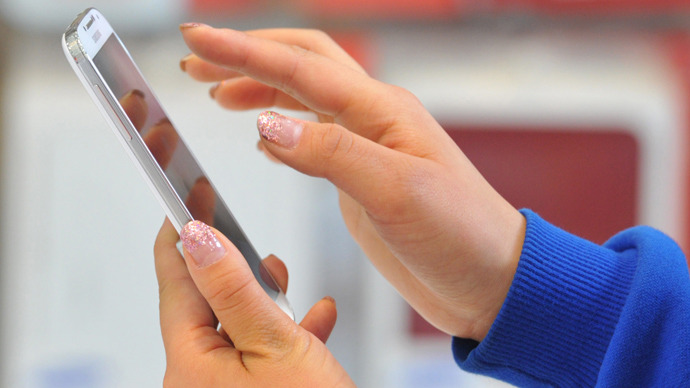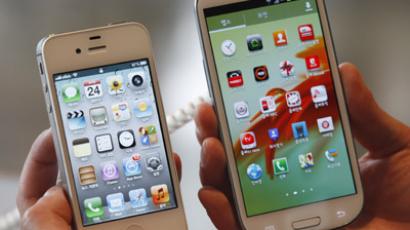Police want 'kill switch' for smartphones

An epidemic of cell phone swiping has prompted calls for a ‘kill switch’ that would render mobile devices inoperable if they end up in the wrong hands.
In San Francisco, California, half of the robberies reported in the last year involved the loss of a cell phone. George Gascon is the city’s district attorney and says things don’t have to stay that way.
"Unlike other types of crimes, this is a crime that could be easily fixed with a technological solution,” Gascon told the New York Times recently.
Apple’s iPhone and other smartphone models retail new in stores for hundreds of dollars apiece, and they are far from worthless on the black market. According to the Times, smartphones sold on the street in San Francisco can fetch upwards of $500, substantially less than a brand new iPhone 5 will set a customer back. But would that be any different if, say, stolen cell phones couldn’t be used again? Gascon and others think so and are calling on cell phone companies like Apple and others to implement a new technology that could remotely turn off a stolen phone for good.
"We know that the technology can be developed to prevent this. This is more about social responsibility than economic gain," he added to the Associated Press.
But that economic gain is indeed something that cell phone makers don’t want to miss out on. Last year almost 174 million new cellphones were sold in the United States, totaling roughly $69 billion in sales. In cities such as San Francisco or Washington, DC — where 40 percent of last year’s robberies involved cell phones — victims of mobile phone threat are stuck spending hundreds, sometimes thousands of dollars a year on replacement phones. If swiped smartphones couldn’t be used, Gascon said the number of incidents would likely go down.
"What I'm talking about is creating a kill switch so that when the phone gets reported stolen, it can be rendered inoperable in any configuration or carrier," Gascon he told the newspaper.
Chuck Wexler is the executive director of the Police Executive Research Forum, and explained to the Times that the cell phone industry could have started taking these steps years ago.
“If you look at auto theft, it has really plummeted in this country because technology has advanced so much and the manufacturers recognize the importance of it,” he said. “The cellphone industry has for the most part been in denial. For whatever reasons, it has been slow to move.”
It will likely take a whole lot more than asking politely to have Apple, Google and others change the way their phones work, though. Gascon met with Apple's government liaison officer Michael Foulkes last year to discuss the ‘kill switch’ option and described the encounter to the Times as “disappointing.”
"For me, a technical solution is probably better than just a criminal solution," Gascon said. "We can always create more laws, but look at how long it already takes to prosecute somebody at the expense of the taxpayers?”
Washington, DC Police Chief Cathy Lanier emailed the Associated Press to say she advocates new federal laws that will require wireless service providers to participate in a national stolen phone database that, while in place today, doesn’t mandate that carrier subscribe to the system.
"This is a voluntary agreement and the decision makers, heads of these (wireless) companies may transition over time and may not be in the same position five years from now." she said. "Something needs to be put in place to protect consumers."













